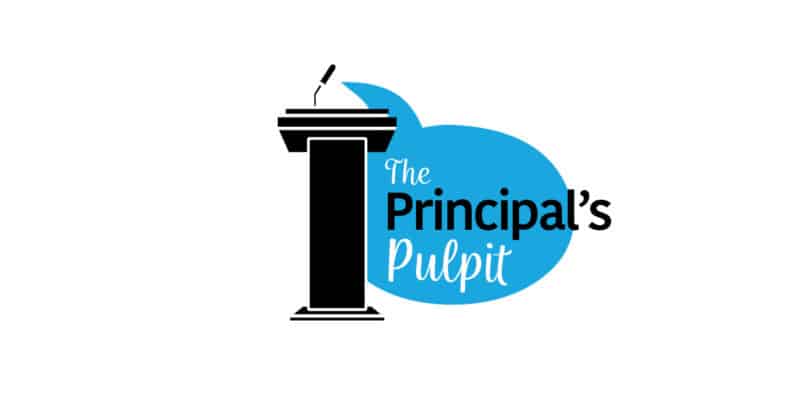The Good Samaritan parable is one of the most loved Gospel stories. This is a story I have taught many times in Religious Education classes. It is a story that I often reflect upon in my own prayer.

Andrew Murray St Mary’s College, Wellington
The parable is told in Luke 10:29– 37: A man going from Jerusalem to Jericho is attacked by robbers who strip him and beat him. A priest and a Levite pass by without helping him. A Samaritan, however, stops and cares for him, taking him to an inn, where the Samaritan pays for his care. It is a story that has stayed with me for many reasons throughout my leadership journey. I am not sure if it is because I once taught in a school called “Good Samaritan”, or the characters in the Gospel story all resound with me. I think we all may have played one or other of the characters in our time.
Each day, as a school leader, we are challenged to prioritise people over policy, procedures, and programmes. A purposeful and powerful vision for the future is an essential attribute for an outstanding leader. Sometimes, the benchmarks, strategic plans, and initiatives become the end instead of the means to the end. We can get lost in these and pass our people by.
Just recently, I was working with another principal on a way to deliver the National Education and Learning Priorities (NELP) and the Tertiary Education Strategy (TES) set out in the Government’s priorities over the next 18 months. It was a remarkable and worthwhile piece of mahi. What I noted, however, was that the focus was on the protocol instead of the people.
The best school leaders are not those who implement the best programmes; rather, they are those who empower their people to grow and lead. Getting things done without growing those responsible for executing the mahi is a way to short-term success and long-term failure. In this piece of work, I had walked right past the injured man on the road.
It took great courage for the Samaritan in this Gospel story to help the man on the side of the road. He had no idea if the robbers were still around. When I am working with my team, I often have them share with me one difficult conversation they have been avoiding, whether it is something they need to discuss with another individual, the staff, or a parent. I ask them to reflect on why that korero has not happened. Just like the Levite or priest, there is always a reason not to cross the road and do the difficult thing. It is easy to respond: “I’m too busy,” or “It won’t help anyway.”
I do not apologise for my directness in how I coach from there. I say, “Every time you choose to avoid a difficult conversation, it is a selfish decision. Why? Because the only person who could possibly benefit from avoiding a difficult conversation is you.” It is vital that, when we participate in hui, we do so through the lens of helping others, and helping the kura grow. Every difficult conversation represents a possibility for us to lead and an opportunity for the other person to better serve.
Maybe this story resonates with me because I want to be the very best school leader I can be. Why? Because for me being a principal (or a teacher, for that matter) is more than a job, it is a vocation. I do not go to work to produce something, to sell something, or to manage something. I go to work to make a difference, and that difference is measured in people’s lives. Just like the Samaritan.
What I do, the decisions I make, the school culture I create, the way I lead, will make a difference in countless people’s lives. It can make a difference to the earning capacity of a young person; it can make a difference to a young person’s sense of self-worth; to their well-being and to their family. The sense of responsibility is huge. What I do know is that helping those struggling by the side of the road is what we are all about. Some days I am tempted to be the Levite or the priest, but most often I am the Samaritan, and that is the challenge we all have.
Andrew Murray is principal of St Mary’s College, Wellington.

Great message Andrew.